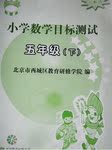题目内容
In fifteen terrible seconds a large city .
- A.lied in ruin
- B.lay in ruin
- C.lied in ruins
- D.lay in ruins
跟据题意,在15秒内一个城市成为废墟用过去时,成为废墟lie in ruins,固定搭配。

 目标测试系列答案
目标测试系列答案People being tested for radiation exposure
The crisis at the damaged Fukushima Dai-Ichi Nuclear Power Station in northern Japan has raised worries about radiation risks. We spoke Tuesday with Jonathan Links, an expert in radiation health sciences. He is a professor at the Johns Hopkins Bloomberg School of Public Health in Maryland.
Professor Links says workers within the nuclear plant are the only people at risk of extremely high doses of radiation.
JONATHAN LINKS: "Of course, we don't know what doses they've received, but the only persons at risk of acute radiation effects are the workers."
For other people, he says, there may be a long-term worry. People can get cancer from low doses of ionizing radiation, the kind released in a nuclear accident.
Professor Links says scientists can use computers to quickly model where radioactive material has blown and settled. Then they measure how large an area is contaminated. He says if the situation is serious enough, officials could take steps like telling people not to eat locally grown food or drink the water.
JONATHAN LINKS: "But that would only be the case if there was a significant release and, because of wind direction, the radioactive material was blown over the area, and then settled out of the air into and onto water, plants, fruits and vegetables."
The reactors at Fukushima are on the Pacific coast. But Professor Links says people should not worry about any radioactive material leaking into the ocean.
JONATHAN LINKS: "Even in a worst-case scenario accident, the sea provides a very high degree of dilution. So the concentration of radioactivity in the seawater would still be quite low."
Japan is the only country to have had atomic bombs dropped on it. That memory from World War Two would create a stronger "psychological sensitivity" to radiation exposure, Professors Links says.
Next month is the twenty-fifth anniversary of the explosion and fire that destroyed a reactor at Chernobyl in Ukraine. The nineteen eighty-six event was the world's worst accident in the nuclear power industry.
A new United Nations report says more than six thousand cases of thyroid cancer have been found. These are in people who were children in affected areas of Belarus, Russia and Ukraine. The report says that by two thousand five the cancers had resulted in fifteen deaths.
The cancers were largely caused by drinking contaminated milk. The milk came from cows that ate grass where radioactive material had fallen.
To get the latest updates, go to www.unsv.com.
Contributing: James Brooke
【小题1】The passage mainly tells us __________.
| A.What measures the Japan Government takes to solve the nuclear crisis . |
| B.Worries and influences caused by the nuclear crisis . |
| C.With great efforts of scientists , the Japan Government has put the nuclear crisis under control . |
| D.To explain that the nuclear crisis has less effect on its neighboring countries. |
| A.Workers at the nuclear station are suffering the risk of death . |
| B.People can get cancer from low doses of ionizing radiation, the kind released in a nuclear accident. |
| C.The radioactive material may be blown over the area causing the pollution to water . |
| D.The concentration of radioactivity in the seawater can not be diluted. |
| A.chemical | B.salt | C.dissolution | D.elimination |
| A.Water people drink ,food and vegetables people eat may be polluted by nuclear radiation . |
| B.Japan is the only country to have had atomic bombs dropped on it. |
| C.You can go to www.unsv.com. to get the latest news . |
| D.The nuclear accident in Japan is the worst in the nuclear power industry. |
 e needs to take
e needs to take . exciting C. quick D. relaxing
. exciting C. quick D. relaxing